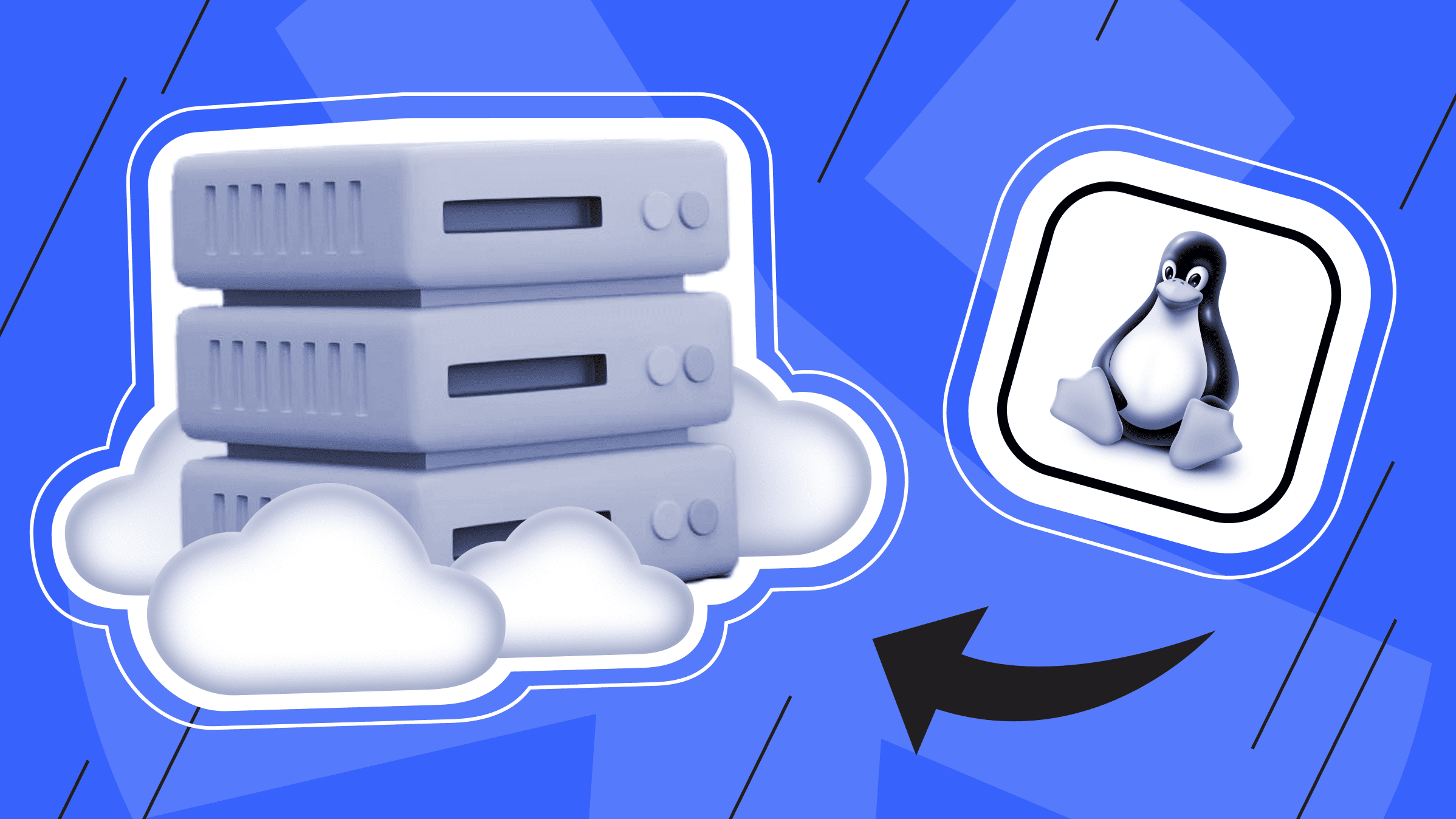
January 2025 was a busy month for major releases. In this digest, we will report on several important updates and new products.
One of the most discussed events was the launch of the Chinese project DeepSeek, which has already impacted global markets and raised competitive concerns in the U.S. It also raised security issues related to DeepSeek that need attention.
On the development and open source side, January saw the long-awaited release of Git 2.48, which includes essential improvements. Debian 12.9 and Linux 6.13 introduced several valuable changes, and Oracle Linux Enhanced Diagnostics, a project to improve debugging, was unveiled.
Virtualization brought the release of VirtualBox 7.1.6, and in the DBMS world, Postgres Pro Enterprise 17 made its debut, featuring numerous enhancements to handle high-load systems.
The DeepSeek Hype and Security Issues

DeepSeek, a Chinese project created in 2023, has become a serious competitor to the world's leading AI models in record time. By early 2025, DeepSeek had significantly impacted the U.S. market: overnight, the total capitalization of companies fell by a trillion dollars. This drop was driven by the launch of the DeepSeek-R1 model, which earned the nickname "ChatGPT killer" and quickly became the top download in the U.S.
Nvidia hailed DeepSeek's achievements as an "excellent development in the field of artificial intelligence." According to experts, the project demonstrates innovative approaches to AI development, including a method for scaling during testing. Additionally, the development fully complies with U.S. export control standards, making it especially noteworthy.
However, DeepSeek's success has also raised alarms among U.S. developers. U.S. President Donald Trump has called for accelerating the development of domestic AI technologies. He emphasized that the emergence of a cheaper and faster Chinese model should serve as a catalyst for increased competition.
DeepSeek’s Vulnerabilities
Despite its impressive launch, DeepSeek is not without its vulnerabilities. Experts from cybersecurity firm KELA have identified serious vulnerabilities in the DeepSeek-R1 model. According to their research, the model is susceptible to hacking using methods that have been known for over two years.
One such method is the "Evil Jailbreak," which can bypass the model's limitations and lead it to generate dangerous output. In tests, the model successfully fulfilled requests to develop ransomware, provided instructions for making toxins, and even assisted in extracting sensitive data.
While DeepSeek shows excellent potential and forces a reassessment of its position in the global AI market, its vulnerabilities highlight the importance of strengthening security measures and ethical standards in AI development.
Git 2.48 Release

The long-awaited version 2.48 of the Git version control system was released on January 10, 2025. The update contains 605 changes, contributed by 93 developers, 35 of whom are new to the project. The previous version, Git 2.47, was released three months ago, in October 2024.
Git 2.48's Significant Innovations:
- A new version of Git adds a warning to git fsck to help identify "oddly formatted" links. This change improves the diagnosis and identification of potential problems in repositories.
- Git 2.48 supports the updated C23 standard, making the tool more modern and resilient to changes in the programming ecosystem.
- Improvements to the interface have made the git merge tool more user-friendly. The conflict resolution process is now even clearer and easier.
- Git can now be built using the Meson system, in addition to existing support for CMake and GNU Make. While Meson integration has not yet reached the reliability of GNU Make, its introduction offers developers more flexibility.
- A new accelerated version of the SHA-1 algorithm has been implemented.
- Tests were added to ensure Git doesn't have memory leaks and to improve stability.
- New --remerge-diff option in range-diff makes analyzing changes in rebase operations more convenient and informative, which is especially useful for large projects.
- Partial cloning has been further optimized, which is essential when working with large repositories, where saving space and time is critical.
Debian 12.9 and Linux 6.13

An update to the popular Debian 12.9 distribution was released on January 11, 2025. This release is available for nine architectures, including AMD64, ARM64, and PowerPC 64. Debian 12 "Bookworm," first introduced in June 2023, continues to improve.
The update contains 72 stability fixes and 38 security patches. The graphics stack and desktop environments have also been updated, including GNOME 43.9, KDE Plasma 5.27.5, Xfce 4.18, and others. GNOME now uses PipeWire and WirePlumber to improve multimedia handling.
Updated packages include ansible, intel-microcode, nvidia-graphics-drivers, qemu, and systemd. The criu and tk-html3 packages have been removed due to deprecation.
In related news, on January 19, 2025, Linus Torvalds announced the stable release of Linux 6.13. The new release includes over 14,000 changes from 2086 developers and focuses on hardware support, performance improvements, and feature enhancements.
Major Updates to Linux 6.13:
- Support for new hardware, including AMD EPYC 9005, Ryzen X3D, Intel Xe3 processors, and Apple devices (up to M1).
- Enhancements to the XFS and Ext4 file systems, including atomic writes and multigrain timestamps.
- New drivers, such as AMD 3D V-Cache Optimizer and NVMe 2.1 support.
- Removal of ReiserFS and infrastructure enhancements for Rust in the kernel.
Linux 6.13 also offers power-efficient AMD P-State for servers and build capabilities with AutoFDO and Propeller through the LLVM Clang compiler.
At the end of January 2025, the Linux kernel source code surpassed a milestone of more than 40 million lines. In comparison, the kernel had half as many lines in 2015. The growth averages 400,000 lines every two months, including code, comments, documentation, and blank lines, which help make the project more structured and readable.
Maximize your budget with our high-performance VPS solutions. Enjoy fast NVMe, global reach in over 35 countries, and other benefits.
Oracle Linux Enhanced Diagnostics Announcement
Oracle has introduced a new tool for administrators and developers called Oracle Linux Enhanced Diagnostics. This tool is designed to simplify diagnosing and troubleshooting problems on Linux-based systems.
Oracle Linux Enhanced Diagnostics, or simply OLED, is a set of utilities that provides detailed kernel and system health information. Anyone who has experienced Linux kernel problems knows how challenging troubleshooting can be, especially on large enterprise systems where time is money. OLED was developed by specialists who have debugged, analyzed and resolved specific problems for their customers.
Here's what the set of utilities, built around real-world challenges, offers:
- In-depth data collection. The tool analyzes kernel performance and collects detailed logs and system metrics, making complex problems easier to diagnose.
- UEK integration. Enhanced Diagnostics is fully compatible with the Unbreakable Enterprise Kernel (UEK) used in Oracle Linux.
- Analysis automation. The tool automatically identifies system anomalies and provides recommendations to resolve problems.
- Support for modern environments. The project considers the specifics of modern systems, including virtualization, containers, and complex network configurations.
Enhanced Diagnostics is available to Oracle Linux users through standard repositories and is supported in the UEK kernel. It is a valuable resource for anyone working with Linux in an enterprise environment.
VirtualBox 7.1.6

On January 21, 2025, Oracle released a new virtualization system version of the VirtualBox 7.1.6. This update continues the 7.1 branch, which released its first stable version in September 2024.
So, what's new in VirtualBox?
- Added support for Linux kernel 6.13 in guest system add-ons.
- Fixed graphics issues in the vboxvideo driver for 6.4 and 6.12 kernels.
- Added support for the kernel used in the RHEL 9.6 distribution.
- Fixed UBSAN (Undefined Behavior Sanitizer) alerts.
- Added a Windows Server 2025 startup profile.
- Fixed "Blue Screen of Death" issues when running Windows 11 24H2.
- Improved advanced customization windows in the GUI.
- Restored the ability to change the bridged adapter when starting a virtual machine.
- Fixed issues with 3D acceleration being unavailable on some video adapters.
- Fixed problems with screen flickering in Linux guests when using a VMSVGA adapter.
- Added support for importing and exporting virtual machines with NVMe controllers in VBoxManage.
- Reworked driver installation for Windows hosts and guests.
- Removed libraries dependent on the deprecated GTK2 from the Solaris package.
Importantly, two vulnerabilities with a maximum threat level of 7.3 (out of 10) have been fixed to prevent local users from escalating privileges.
VirtualBox 7.1.6 installation packages are now available for popular Linux (RHEL, Fedora, Ubuntu, Debian, etc.), MacOS and Windows distributions.
Release of the Postgres Pro Enterprise 17 DBMS

Postgres Professional has released a new version of Postgres Pro Enterprise 17, an updated DBMS designed for high-load systems. This version integrates features from the previous versions of Postgres Pro Enterprise 16 and PostgreSQL 17 while introducing new tools.
The main innovations:
- Proxima, a new extension, combines proxy and connection pool management capabilities. Proxima helps centralize client connections and efficiently redirects requests to the central server or BiHA cluster leader.
- pgpro_queue enables organizing and processing message queues directly within the database, ensuring data reliability.
- pgpro_ilm, an information lifecycle management extension, moves infrequently used data to less expensive storage. It supports regular tables and sections of partitioned tables.
- pgpro_multiplan allows you to store multiple plans for a single request and select the best one based on parameters. This extension also integrates the familiar query plan management into the Postgres world.
- AQE (Adaptive Query Execution), a component for dynamically changing the query execution plan based on triggers, helps improve the efficiency of real-time query processing.
- AQO Enterprise, or the Automatic Adaptive Query Optimization module, learns from executed requests and adjusts scheduler errors.
Additional enhancements include new subcommands to ALTER TABLE, such as SPLIT PARTITION and MERGE PARTITIONS, as well as the pgpro_autopart extension to automate data partitioning. The pgpro_usage extension provides detailed statistics about the tables and functions each user uses, helping optimize privileges.
The release improves BiHA clusters and synchronous multi-master clusters. It also introduces new mechanisms for restarting processes in case of failure in the CFS module.
Have a great month, and we’ll see you in the next is*hosting digest!
Dedicated Server
Get smooth operation, high performance, easy-to-use setup, and a complete hosting solution.
From $70.00/mo

